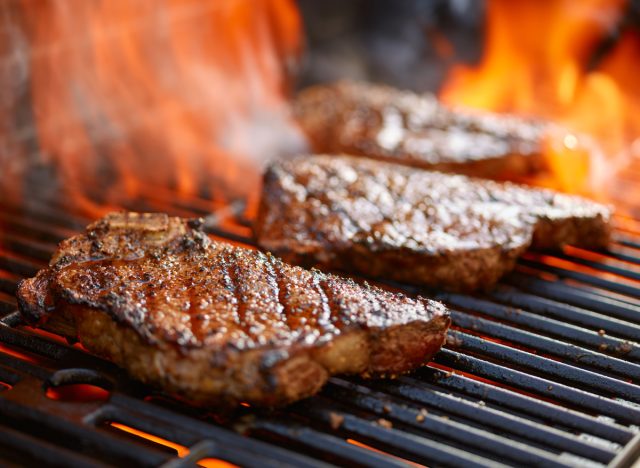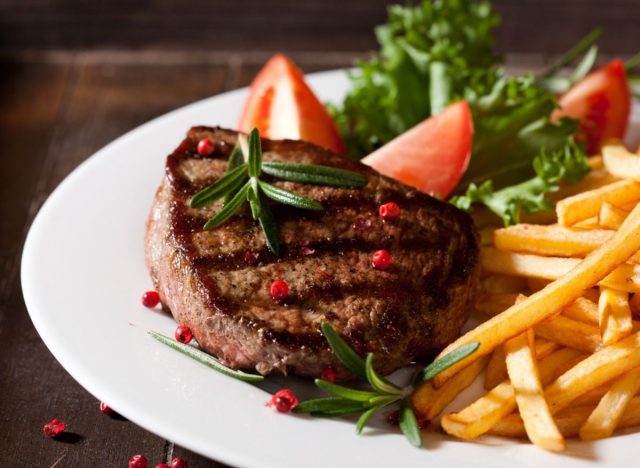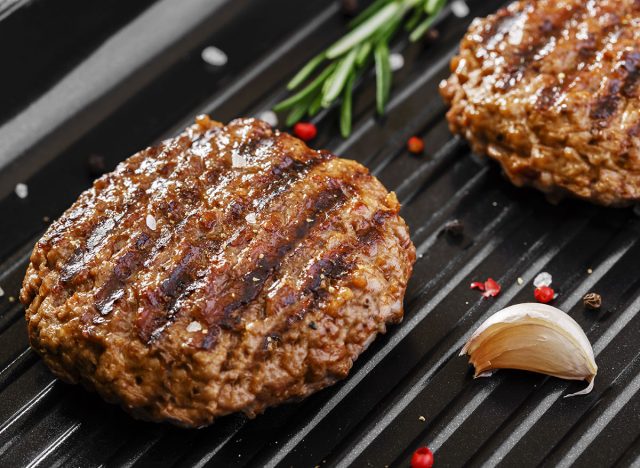4 Surprising Side Effects of Eating Red Meat in Your 50s

The health benefits of eating red meat have been hotly debated for decades. While some people say it's unhealthy and should be avoided, others say it can be part of a healthy, balanced diet.
But what about the potential risks as you age? Can those in their 50s still enjoy red meat on a regular basis, or are the potential health consequences too risky?
Continue reading to learn more about the surprising side effects of eating red meat in your 50s. And for more healthy aging tips, make sure to check out 5 Drinking Habits That Are Aging You Faster.
It may contribute to higher cholesterol.

Unfortunately, as delicious as it can be, red meat has been known to contribute to higher cholesterol. This is because red meat is high in saturated fat, which is known to raise cholesterol over time. According to the American Heart Association, red meat has more saturated fat than animal products like chicken or fish.
Having high cholesterol over time can contribute to heart disease. According to Medical News Today, coronary heart disease is often caused by too much build-up of cholesterol on the artery walls, leading to blockages of blood to the heart. Because cholesterol can become more of an issue with age, reducing your intake of red meat may help.
It may shorten your life.

In 2012, Harvard researchers published a study in the Archives of Internal Medicine. In this study, researchers found that those who ate more red meat had higher rates of mortality and cardiovascular disease. Harvard concluded after 28 years of research that every additional serving of red meat on a daily basis could possibly increase the risk of death by 13%. Not only that, but consuming processed red meat increased this number to 20%.
You'll get a boost of protein.

There are some good qualities to red meat, too. For example, red meat is packed full of protein. For example, there are about 25 grams of protein in 100 grams of ground beef, and 27 grams of protein in 100 grams of a grilled steak.
It's especially important to consume enough protein as you age, but because of the heart disease risks associated with eating too much red meat, the American Heart Association still recommends getting protein through lean meat or plant-based sources.
It may contribute to existing kidney problems.

Your risk for developing kidney disease or other related kidney issues increases as you get older. For those experiencing kidney troubles, red meat may not be the best option.
According to Medical News Today, those with Chronic Kidney Disease may benefit from eliminating or limiting their consumption of red meat. This is because those who have kidney issues have difficulties processing phosphate, which means they may want to consume less phosphate in their food.









